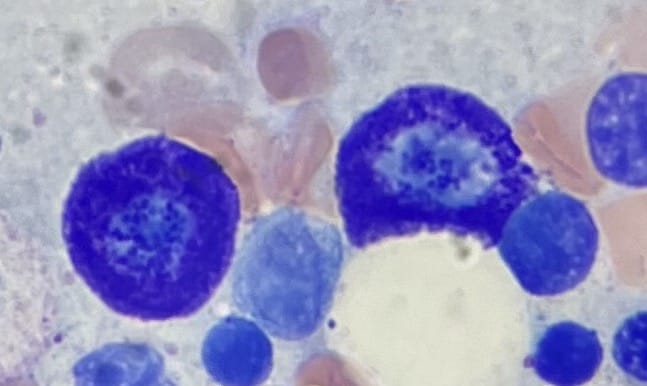Hereditary alpha tryptasemia (HAT)
Hereditary alpha tryptasemia (HAT) is a rare genetic condition that is caused by mutations in the TPSAB1 gene, which codes for alpha tryptase, a type of enzyme that is released from mast cells. Mast cells are a type of white blood cell that are involved in the body’s immune response to allergens and infections.
People with HAT have elevated levels of alpha tryptase in their blood, which can cause a range of symptoms including flushing, itching, hives, asthma, abdominal pain, and anaphylaxis. HAT is often misdiagnosed as other conditions such as mastocytosis or idiopathic anaphylaxis, which can make it difficult for patients to get the proper treatment and management of their symptoms.
HAT is an autosomal dominant genetic disorder, which means that only one copy of the mutated gene is needed for a person to develop the condition. This also means that a person with HAT has a 50% chance of passing the mutated gene on to their children. It is estimated that 4-6% of the general population has elevated tryptase levels and may have HAT.
There is currently no cure for HAT, but there are a number of treatments that can help manage the symptoms. This can include avoiding triggers that can cause an allergic reaction, taking antihistamines, using epinephrine injectors, and taking medications that can help stabilize mast cells.
Research into HAT is still ongoing, and there is still much to learn about the condition. However, with increased awareness and understanding of HAT, patients can receive the proper diagnosis and treatment, and researchers can continue to explore new treatment options and potential cures.
A diagnostic gene test is available to evaluate this condition through a company called Gene-by-Gene. There are other disorders in which an person’s tryptase level can be elevated, including acute anaphylaxis, idiopathic anaphylaxis, and systemic mastocytosis.
If you have concerns about this medical condition, Midwest Allergy Sinus Asthma & Respiratory’s immunology team can help you get diagnosed and offer the most up-to-date treatments to help you manage the disease.
Midwest Allergy Sinus Asthma and Respiratory 2023
Source: Lyons JJ. Hereditary Alpha Tryptasemia: Genotyping and Associated Clinical Features. Immunol Allergy Clin North Am. 2018 Aug;38(3):483-495. doi: 10.1016/j.iac.2018.04.003. Epub 2018 Jun 9. PMID: 30007465; PMCID: PMC6411063.
Image: Two mast cells in bone marrow at 100x magnification after Wright staining, (Licensed under the Creative Commons Attribution-Share Alike 4.0 International license. From Wikipedia.)



